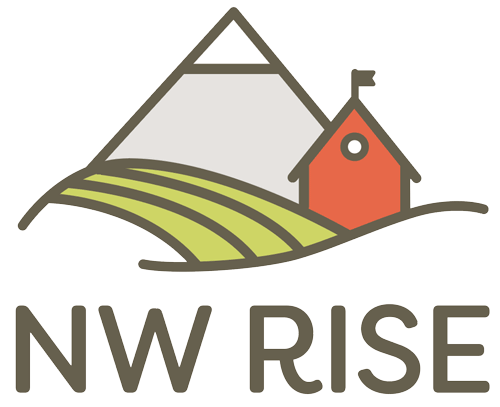December 2022
Teachers in an individual school building or large district can often share ideas and support one another in their educational practices. But for educators in rural areas, this kind of collaboration can be hard to come by—they may be the only person teaching a subject in the entire district, with the closest colleague many miles away.

The Northwest Rural Innovation and Student Engagement (NW RISE) Network provides rural teachers with the kind of professional learning community their peers in more densely populated areas often benefit from. The network, a collaboration between the Region 16 and 17 Comprehensive Centers, includes teachers from Washington, Idaho, and Montana. Most participating teachers come from districts with 400 students or less, but some teach in very small schools within larger districts. NW RISE is built on “the belief that we’re stronger as a collaborative,” says Region 17 Comprehensive Center deputy director Jacob Williams.
Returning to In-person Collaboration
The network brings participating K–12 educators together twice a year for a convening to develop and review their common goals and plans for improvement for the coming six months. At these convenings, teachers share their experiences and connect with each other. Afterwards, they collaborate virtually from home, working on their continuous improvement focus until the next convening.
In December 2022, NW RISE held a convening in Boise, Idaho—its first fully in-person event since 2019. This most recent convening focused on effective student engagement as schools return to in-person instruction. English language arts teachers present noted they have been struggling to get their students to complete tasks, reporting that students’ motivation and perseverance have drastically dropped post-COVID. To help address this, the English language arts job-alike group developed a plan to identify and implement strategies to support increasing students’ perseverance and motivation.
Another important concern for NW RISE educators is teacher retention and recruitment. Greater acceptance of remote working across various work sectors over the past few years has led many people to migrate from urban areas to the rural communities in which NW RISE participants live and teach. The demand for rural living is driving up property costs for the locals, and also makes hiring teachers difficult. “The average rural teacher salary doesn’t go as far in terms of housing as it used to,” Williams says.
Continuing to Rise Into 2023
The next NW RISE convening will take place in Spokane, Washington in June 2023. In the months until then, job-alike groups will focus on improving student engagement in academic learning and staff members from the Region 16 and 17 Comprehensive Centers will help rural educators from small districts across the four-state region stay in touch, work on continuous improvement goals, and prepare to meet again. Concurrently, the network is looking to grow. Interested educators in Montana or Idaho should contact Jacob Williams.